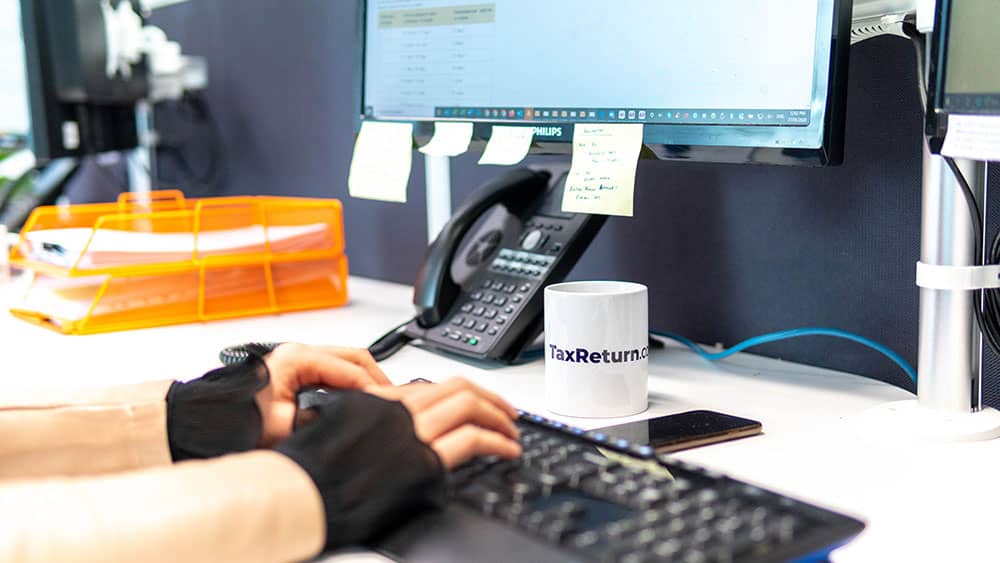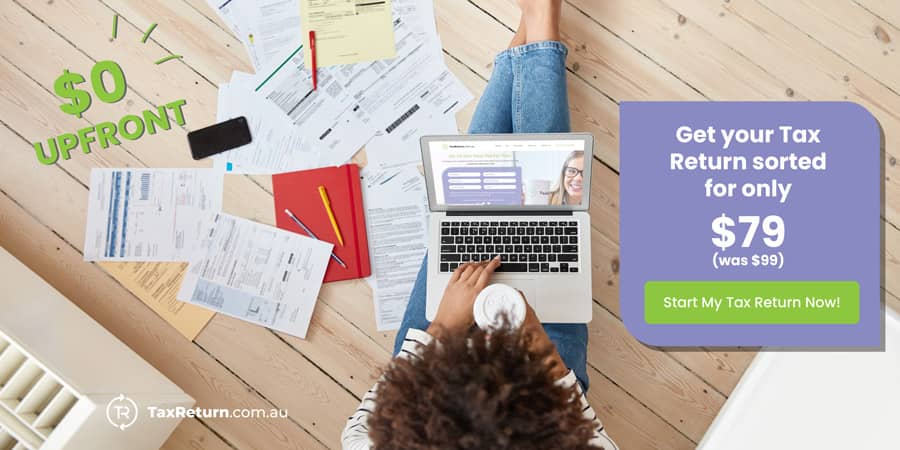[Updated June 14, 2023]
The end of the financial year is a busy time for Australians. Some find it easy, while others say it gets a little complicated for them. Despite the difference in how people may view lodging tax returns, many of us search for tactics (legal, of course) to boost our tax refunds.
We want to pay no more than what we owe, but at the same time, find ways to maximise our tax return this financial year. Thankfully, there are tried and true methods that will help cut your tax liability, which the ATO approves of.
How You Can Maximise Your Tax Return
- Claim Your Work-from-Home Expenses
- Claim Other Work-Related Expenses
- Get Your Donation Back
- Get Extra Refund for Your Side Hustle
- Claim Refund on Self-Education
- Understand Your Tax Bracket
- Save and Track Your Receipts
- Contribute to Your Super
- Get Rid of Loss-Running Assets
- Speak with a Registered Tax Agent
1. Claim Your Work from Home Expenses
It’s not surprising that there is a considerable increase in the number of work-from-home employees over the past year. If you are among them and you are new to this setup, it is understandable that you may not be aware of the work-from-home expenses that you can claim. Just like when you were working in an office, it’s crucial that you do things right, especially with your tax return.
There is a long list of what you can and cannot claim if you’re working from home. And it can get overwhelming for some people. To simplify this information for you, remember that you can claim anything that directly affects how you earn your income. Make sure that you have records to prove the claim, as well. With these things in mind, it’s important to know that you can claim the following if you have a distinct workspace, which is separated from the rest of the household:
- Heating and cooling bills
- Lighting bills
- Cleaning, repair, and maintenance of the area
- Home office fittings and furniture
- Purchase and repair of computers and other related office equipment
- Stationery, papers, printer ink, and other computer consumables
- Internet and phone expenses
Note that computers and other equipment, as well as furniture purchases, are calculated based on their depreciation costs. Buying capital items worth $300 or less can be written off immediately without being depreciated.

2. Claim Other Work-Related Expenses
If you pay for your vehicle and travel expenses, whether you go to your office through your personal car or ridesharing, you may be able to claim a deduction for them. There are, of course, specific limitations to these deductions. For example, driving from home to office and vice versa cannot be claimed. However, you can claim a deduction if you drive or take public transport from one job to another.
Other expenses you may be able to claim for are:
- Clothing and laundry expenses of uniforms that are distinct to your job and company
- Protective clothing and certain accessories for specific employees
- Self-education expenses, including home office costs
- Tools and equipment purchase and other related expenses
- Fees of books and periodicals, as well as digital information and subscriptions
Once again, you can only claim a deduction for the mentioned expenses if they are related to your job. A course that helps you be better for your current duties can be claimed. However, one that may aid you in getting a promotion or another job cannot be claimed.
Another thing to note, though, is that you cannot claim the first $250 that you paid for the course.

3. Get Your Donation Back
If you donate, you can get the money back. For example, if you made a bucket donation where you put money in a donation box or bucket, you can get up to $10 of your money back. You do not need to show a receipt for the good deed. It’s an added bonus that you may not even be aware of during tax time.
However, not all donations are entitled to a tax deduction. If you have donated or sent a gift, make sure that it meets the following conditions:
- It’s a voluntary transfer, whether in the form of a monetary amount or an item.
- You should not get anything in return, including a material gain, advantage, or other favours
- The donation should be money, property, or financial assets like shares
- You must have proof of the contribution, such as a receipt
- Any gift should at least be over $2 in value
You may also need to comply with certain gift conditions when donating to a charitable organisation. Be sure to know about these prerequisites if you would like to claim a deduction come tax time.
4. Get Extra Refund for Your Side Hustle
A few years back, Aussies were not required to declare their side hustle. So, whether you worked as an Uber driver part-time or have an Airbnb property, you were able to keep all your earnings without paying taxes. Unfortunately, the ATO has become stricter and now wants to get all your details. And that includes your participation in the gig economy.
But don’t worry; you can actually claim some benefits for your side hustle. Some of the expenses are deductible, as long as they are incurred as you earn your income. For example, vehicle, home office, and financing costs can be deducted from your tax liability. If you drive people around, you can claim a deduction for using the vehicle while you work. You will need to have a record of the expenses and your work time, however.
Not everything has to be in your tax return. You can keep your income from other activities you have, such as hobbies that do not intend to make a profit. For example, you bake cakes, and someone bought a few. You also do not need to declare your earnings for selling an old bicycle on online platforms.
5. Claim Refund on Self-Education
ATO allows you to claim deductions on the expenses you incur for self-education. However, the study expenses must be relevant to earning your income. Therefore, to make a claim, you have to prove a connection between your studies and your employment. If the self-education is too general, you may not be eligible for the claim as there would be no connection between your studies and your income-earning activities.
For individuals that work and study at the same time, you can claim a deduction if the study relates to your current employment and you can satisfy one of the set conditions. The first condition is to show that you are upgrading your qualifications for your current employment. You may also show that the self-education aims to improve specific skills or knowledge for use in your current employment. You would also be eligible for a claim if you can show that your studies are likely to lead to increased employment income.
Some of the self-education expenses you can claim include:
- Tuition fees
- Textbooks and professional journals
- Computer expenses
- Stationery
- Student union fees
- Fees for student services and amenities
6. Understand Your Tax Bracket
One of the smart ways to prepare for tax season is to determine your tax bracket if you haven’t already. Knowing your tax bracket can help you understand the extent of your tax obligations, allowing you to plan accordingly.
This is important since tax brackets change frequently, especially if your situation has shifted. For example, you are now married or moving closer to a higher tax bracket. With such a change, you will need to estimate your tax liability differently in order to optimise your current position.
Once you know and understand your tax bracket, reviewing the deductions you can claim becomes easier.
7. Save and Track Your Receipts
Most people already know that keeping receipts is essential when lodging tax returns. However, they still end up losing the receipts because they typically stuff them into a drawer or an envelope. Although it may be effective for some taxpayers, there is a better way, especially since sales slips are easy to lose or the ink fades over time.
One solution is to file away all relevant invoices and show them to your accountant for advice. That way, you know the documents to keep for the next tax time. Another method is to digitise invoices to ensure their safety.
Remember that the ATO requires you to show evidence of your expenses to claim deductions. Having the receipts ready makes it much easier to support your claims, which can lead to more deductions.
8. Contribute to Your Super
An effective strategy to increase your tax return is to contribute to your superannuation fund. Personal contributions can potentially be eligible for a tax deduction, meaning you may be able to claim a certain amount based on your contribution. Therefore, we recommend that you contribute as much as you can in order to maximise your tax return in 2023 fully.
Another benefit is concessional tax treatment. Your super contribution is taxed at a much lower rate compared to your ordinary income’s marginal tax rate. You can take advantage of the varied rate, which can reduce your overall tax responsibility. As you continue to make super contributions, it will eventually accumulate, giving you the benefit of compounding investment returns.
9. Get Rid of Loss-Running Assets
Do you have declining stocks, underperforming mutual or exchange-traded funds, or failing real estate? It’s time to let these low-running investments go. Here’s why: you will eventually be compelled by the law to pay some tax on them. Therefore, holding on to them will only result in more taxes.
Selling off loss-running assets allows you to utilise capital losses to offset capital gains, a strategy known as capital gains tax offset or tax-loss selling.
But don’t rush, however, especially if you plan to buy back your shares in the next tax year. This is not recommended, as the ATO will cancel your tax benefits and even impose penalties.
10. Speak with a Registered Tax Agent
It may be an additional and unnecessary expense, but investing in professional help for your tax return is a clever move. Hiring a tax agent gives you peace of mind that you’re claiming everything you are entitled to. Even if you have all the receipts, you could miss some expenses you can claim. Or you could make a mistake and include costs that are not claimable. With the help of a tax agent, you can be sure that you have accurate information in your tax return.
Because of your busy schedule, you may be unaware of the changes in tax laws and exemptions. A registered tax agent always keeps track of these changes so that they can provide you with relevant and tailored tax advice.
Remember that timing can boost your tax return. And here at TaxReturn.com.au, we can help simplify the process for you. Get your biggest tax refund with the assistance of our friendly staff. Contact us today!




